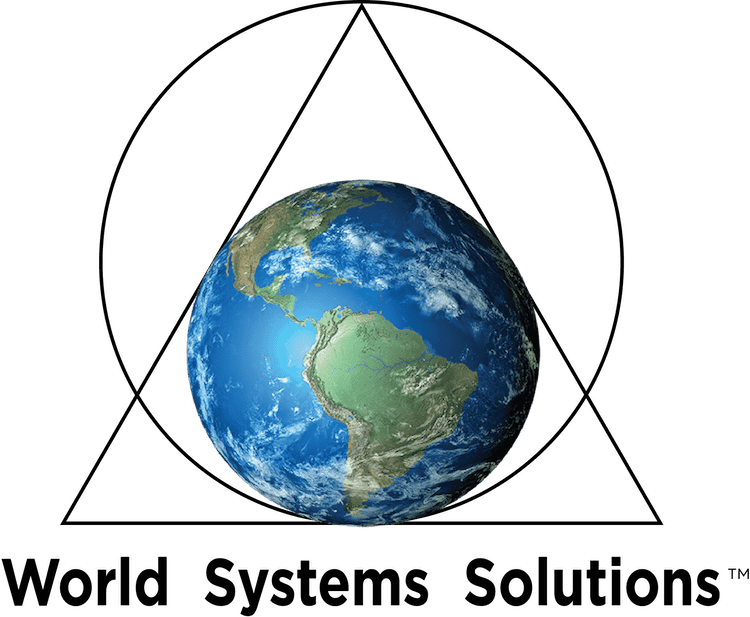Are we choosing a livable future for our children?
It's easy to assume that if our current agricultural systems and structures sustain, nourish and support us, we'll accept them as the best option. When a system meets our immediate needs, it's tempting to embrace and even champion it as the best choice for our present circumstances. However, it is imperative that we pause and reflect: are we truly aware of the empowered options available to us for creating a better world and sustainable food systems?
Consider the following story of a yacht that was beached during a storm. Aboard were the yacht's owners, their nephew and his girlfriend, and a staff member, Gloria. As they remained stranded on an island, Gloria's skills in foraging became crucial for the group's survival. Eventually, the nephew professed his love for Gloria, attributing it to her ability to feed him. This story mirrors our current societal situation: we are attached to our systems because they feed us right now.
The Need for Sustainable Food Systems and Agriculture Transitions
We are currently facing alarming environmental challenges: overfishing has depleted ninety percent of the large fish in our oceans, and wildlife populations have declined by an estimated 69% since 1970. Our current chemical farming systems create runoff that contributes to over 700+ dead zones in our oceans, where nothing can survive due to lack of oxygen. It is important to remember that 50% of oxygen humans breathe comes from Earth's oceans.
When we opt for industrial agriculture over regenerative agriculture, we disrupt the water cycle and soil health, leading to soil erosion, reduced drought resistance, and impaired carbon sequestration. Our current agricultural methods represent a piece of a larger puzzle being assembled globally which ultimately depicts ecosystem collapse and extinction.
Many may think we can continue to engineer our way out of these challenges when the most optimal long-term decisions would involve transitioning to a system that works with nature, not against it. By simply amending the existing dysfunctional framework, we are choosing a dystopian future for our children. In addition to these downline domino effects of our current farming system, greenhouse gas emissions are steering us toward a global average temperature breech of 1.5 degrees Celsius--a point of no return for the ecosystem. If we get our global food systems right, the benefits will nourish the next generations in ways beyond food. The last things our future loved ones need are wars over resources, the inability to grow food due to extreme weather conditions or ecosystem collapse -- things we can avoid by acting right now.
The harsh reality is that many of the existing farming systems we rely on are not suited to support future generations in the long term. This concern is not just theoretical; it is a pressing issue that demands our immediate attention and action. What could be more important at this moment? Recognizing this is the first step in taking accountability for the future we are shaping. We must acknowledge that the duty to build regenerative agriculture and food systems rests with all of us.
Confronting Resistance to Change
Often, when this topic is raised, there's resistance, epitomized by the argument, "We have to feed the world's people." It is crucial to understand that most of our crops are used to feed animals, which we then consume as meat. It's worth asking, "Would you be willing to reduce your meat consumption to help preserve and/or help transition land for future generations?" These conversations are often politicized, likened to infringing on personal liberties. Further resistance arises from traditional farmers' need to continue supporting their own families. Unaware of the number of well-paying green jobs potentially available, these individuals equate a shift in agricultural practices with poverty. In addition, our current oil agricultural system is subsidized by $10-50 billion per year,https://www.reuters.com/business/energy/biden-budget-target-us-fossil-fuel-subsidies-2023-03-09/.

"Green jobs are more in demand than nurses — and they pay a premium"
Noticing this resistance to change and attachment to 'old stories' is essential as they relate to policy changes. If we cannot empathize with the pain and suffering of future generations — their inability to access nutritious food, and the degradation of ecosystems essential for human survival — how can we muster the courage to implement the necessary changes?
Society's Blame Game
What follows in our resistance is the notion that the need for change implies past wrongdoing. It's vital to realize that change is a process, not a problem. Studies from the 1950s once suggested that sterile land farming systems were beneficial for feeding large populations. We now understand that this approach has led to a system that prioritizes profit over your health, clean water, greenhouse gas emissions, and working in harmony with Earth's natural ecosystem cycles. It's okay to learn as a society and as a result change. We must continue to support our friends in the agricultural industry rather than alienate them. It is also imperative for each person to have a complete understanding of the challenges and to feel a part of community-wide solutions. That way as changes occur, whether temporarily or permanently, we collectively understand why we are choosing what we are.
When Complexity and Despair Meet Hope
The Role of PHOENIX World Transformation Platform
At World Systems Solutions, we are offering a global utility and collaboration station that transcends political affiliations, competition, and short-term thinking. Our goal is a global catalytic transformation that is co-created with you. To fast track the transitions needed for positive environmental impact, protect food security, create efficient supply chains, and regenerative agriculture, we must have a unifying system that helps take the guess work out of a smooth transition.
Currently, there is not a global support system offering a path of hope for the future generations. The PHOENIX World Transformation Platform offers a complete framework for this vision. It aims to unify individuals, organizations, and nations in a functionally aligned way, focusing on solving pressing environmental issues and promoting sustainable agriculture. This platform serves as a utility for the acceleration of global transformation, focusing on sustainability, renewal, and reharmonization with nature and the planet. For a project of this global scale, most people would suspect a cost in billions of dollars. Remarkably, a significant portion of the PHOENIX can be completed for an estimated $20 Million, offering humanity an accelerated path to collaboration for long-term survival.
Creating Sustainable Agricultural Systems
We extend an invitation to you: Rethink what you believe is possible. Challenge your preconceptions, broaden your horizons, and join us in reimagining a future where our children can flourish. This is our moment to choose consciously and scale our good intentions. What else are we doing with our days, if we are not ensuring future generations can survive on this planet? The choices we make today will shape the world our children will inherit.
Together, we can creatively lean into possibility focused thinking and build a future that we can all be proud of. All we need to do is choose to do it, the rest is just details.
We invite you to collaborate in three ways,
- For government officials, universities, and key stakeholders implementing these changes, we ask that you contact strategicpartnerships@wssnow.org.
- The changes that need to occur not only need to occur right now. We need to continue to radically lean in for the next 30-100+ years. This requires helping to elevate how we currently approach education. The next quarterly Youth Climate Summit in the EmpowerED series, focused on redesigning education and mapping its implantation globally to support sustainability, will take place on January 13th, 2024. After all, it is the youth who will inherit this earth, and learning a new approach to these challenges together will inform future education and the development of the PHOENIX World Transformation Platform. https://wssnow.org/wss-youth-climate-summit-2/
- Donate at www.wssnow.org/donate or to speak with our philanthropy support team,strategicpartnerships@wssnow.org


This is so informative, together we can build a better tomorrow
1.5 degrees Celsius is almost 35 degrees Farenheit!
I love how you cover this topic with such depth and clarity. It’s evident that you put a lot of effort into researching and presenting this information. Well done!